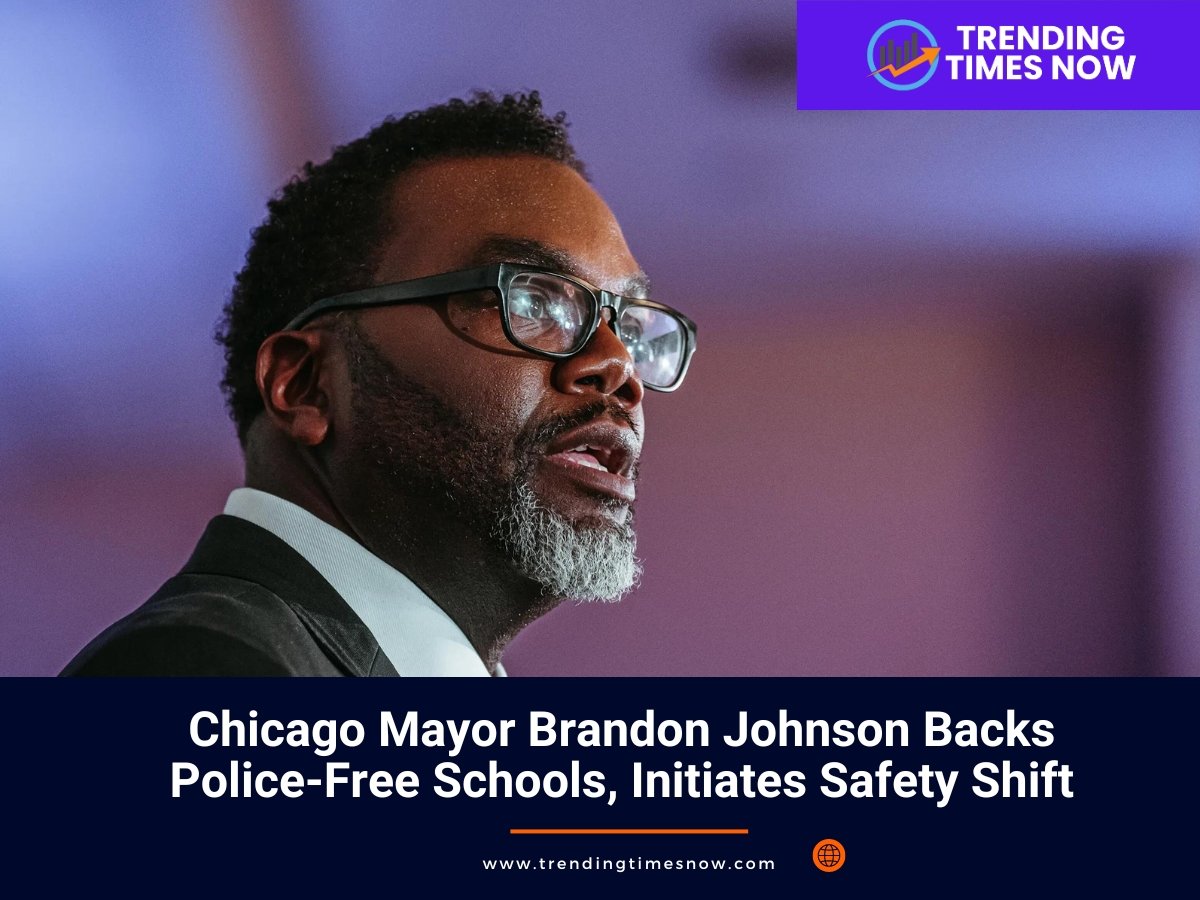In a decisive shift, Chicago Mayor Brandon Johnson has unequivocally expressed his support for the removal of police officers from the city’s high schools, spotlighting a pivotal change in school safety and community policing. This endorsement is part of a broader strategy to reimagine the role of law enforcement in educational settings, aiming to foster a safer and more supportive environment for students.
The Background: A $10.3 Million Decision
At the heart of this debate is a significant contract between the Chicago Police Department and the city’s Board of Education, valued at $10.3 million. Mayor Johnson’s backing of the Board’s decision to terminate this contract underscores a commitment to redirecting resources towards more holistic approaches to student safety and well-being.
Read: Massachusetts School Closure Sparks Debate Amidst Teachers’ Union Strike
Community and Education at the Forefront
Mayor Johnson’s stance is influenced by a growing consensus that police presence in schools may not be the most effective way to ensure safety. Critics argue that it can create an atmosphere of fear and contribute to the school-to-prison pipeline, particularly affecting marginalized communities. The call for change includes a push for increased investment in mental health professionals, counselors, and social workers to address the root causes of behavioral issues and support students more effectively.
A Divided Opinion: Safety vs. Support
The initiative has sparked a debate within the community. Some, like Taft High School Principal Mark Grishaber, highlight surveys indicating strong support for police officers in schools among parents, faculty, and students. However, the broader move reflects a shift towards reevaluating the effectiveness of police in educational environments and exploring alternative strategies for maintaining safety and order.
The National Context: A Trend Towards Change
Chicago is not alone in this reevaluation. Across the United States, cities and school districts are reconsidering the role of police in schools, driven by national conversations on police reform and racial justice. This reflects a growing awareness of the need for educational environments to be places of learning and growth, free from the implications of policing and surveillance.
Read: UC Berkeley Transfer Acceptance Rate: Insights and Strategies for 2024 Admission
Looking Forward: An Ongoing Debate
As Chicago navigates this significant policy shift, the final decision rests with the Chicago Board of Education. With a vote expected this summer on whether to renew the police contract, the city stands at a crossroads. Will it continue down the path of traditional policing in schools, or will it embrace a new model focused on mental health and community support? The outcome will not only affect Chicago but could also set a precedent for how schools across the nation approach the complex issue of safety and security.
Rethinking Safety in Schools
Mayor Johnson’s reversal from his initial support for local school councils deciding on police presence to endorsing their removal underscores the evolving nature of the conversation around safety in schools. It reflects a broader societal shift towards questioning the efficacy and impact of traditional law enforcement methods in educational settings and exploring more nuanced and supportive alternatives.







